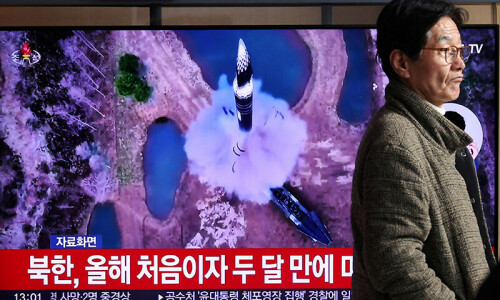QUETTA, March 25: About 72 per cent of the rural population and 40 per cent of the people in urban areas in Balochistan were without the minimum required sanitation facilities, says Balochistan Minister for Local Government Mir Abdul Majeed Bizenjo.
Addressing a seminar jointly organised by the IUCN, Unicef and the Balochistan government in connection with the World Water Day here on Tuesday, he said a provincial sanitation policy and action plan had been approved and it would soon be implemented.
He said that the government was trying to achieve the objectives of the Millennium Development Goals regarding improvement in sanitation.
Mir Bizenjo said that most areas in Balochistan faced long dry spells and people faced shortage of water. “NGOs … should create public awareness about conserving water,” he said.
He said the provincial government was taking measures to provide sanitation facilities because it would help prevent epidemics.
The provincial chief of the IUCN, Dr Abdul Majeed, underlined the need for implementing the government’s action plan and said collective efforts should be made for preventing epidemics.
He said it was a matter of concern that only 20 per cent of the rural and urban population had access to latrines.
Dr Younas Mengal, the chief of the Unicef’s provincial chapter, said that socio-economic development was not possible without sanitation.
“About 40 per cent of schools in Balochistan lack sanitation facilities,” he said, adding that the government could save a lot of money being spent on disease control by providing adequate sanitation.
Secretary Local Government Naseer Ahmed Baloch, Secretary of Public Health Engineering Gul Mohammad Khosa and Nadir Bakht of the Balochistan Rural Support Programme also spoke on the occasion.














































Dear visitor, the comments section is undergoing an overhaul and will return soon.